This article contains spoilers for Hi-Fi Rush in its discussion of joyful revolution and colorful dystopia.
There’s been a lot of talk regarding Hi-Fi Rush’s lovely PlayStation 2/Dreamcast-era game design and how Tango Gameworks might have shadow-dropped one of 2023’s finest games right at the start of the year. Hardcore and casual players alike are raving about it, and with good reason: It’s the kind of action-adventure game that reminds us of simpler, more tranquil times. In many ways, it channels the right kind of nostalgia — that which honors the past while embracing the advancements of today and creating new icons.
For me, Hi-Fi Rush hits most of its targets without breaking a sweat, though I can also see plenty of room for improvement should Microsoft greenlight a sequel. More importantly, it made me reflect on how mainstream video games have grappled with the issues of rampant corporatism – “Are we the baddies?” – and the struggles of the working class. I honestly think plenty has been written about such matters in gaming by writers way more suitable than me, so I’d rather focus on how Hi-Fi Rush presents its revolution.
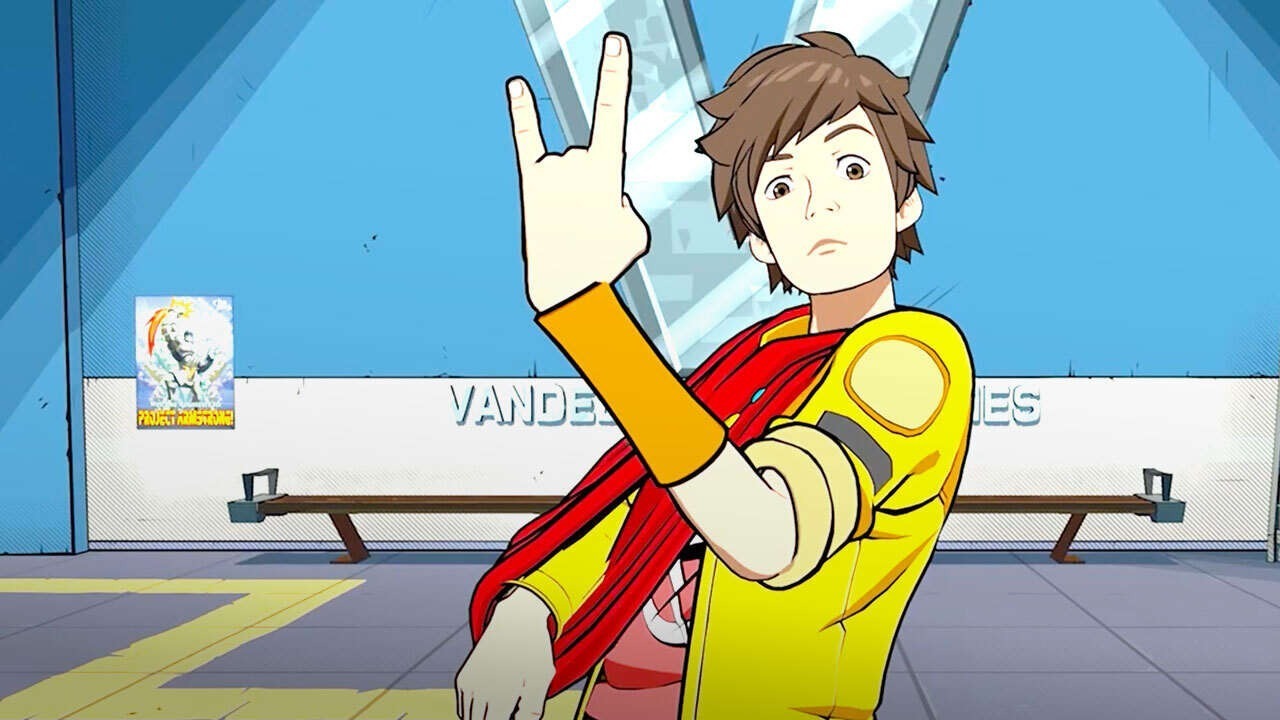
The game begins with Chai, our 25-year-old careless protagonist, walking into Vandelay Technologies’ campus to volunteer for Project Armstrong’s test program for cybernetic limb replacements. Right from the start, players are greeted with The Black Keys’ “Lonely Boy” to set the tone. Hi-Fi Rush keeps those vibes going for the vast majority of its runtime, enhancing the colorful art style and soaking whoever is holding the controller in optimism.
While we don’t get tons of background on Chai, we can guess (and later confirm) that he’s extremely far from having his life figured out. In fact, he plays along with Peppermint’s ambitious anti-corpo plans just because he’s having fun and has nothing better to do. It’s the closest he’s ever been to being a rockstar… even though he’s not playing the guitar, but instead smacking robotic foes with one. Before he can realize what’s really going down, he’s burned through two Vandelay big suits, joining an important revolution while following the beats of his favorite tunes.
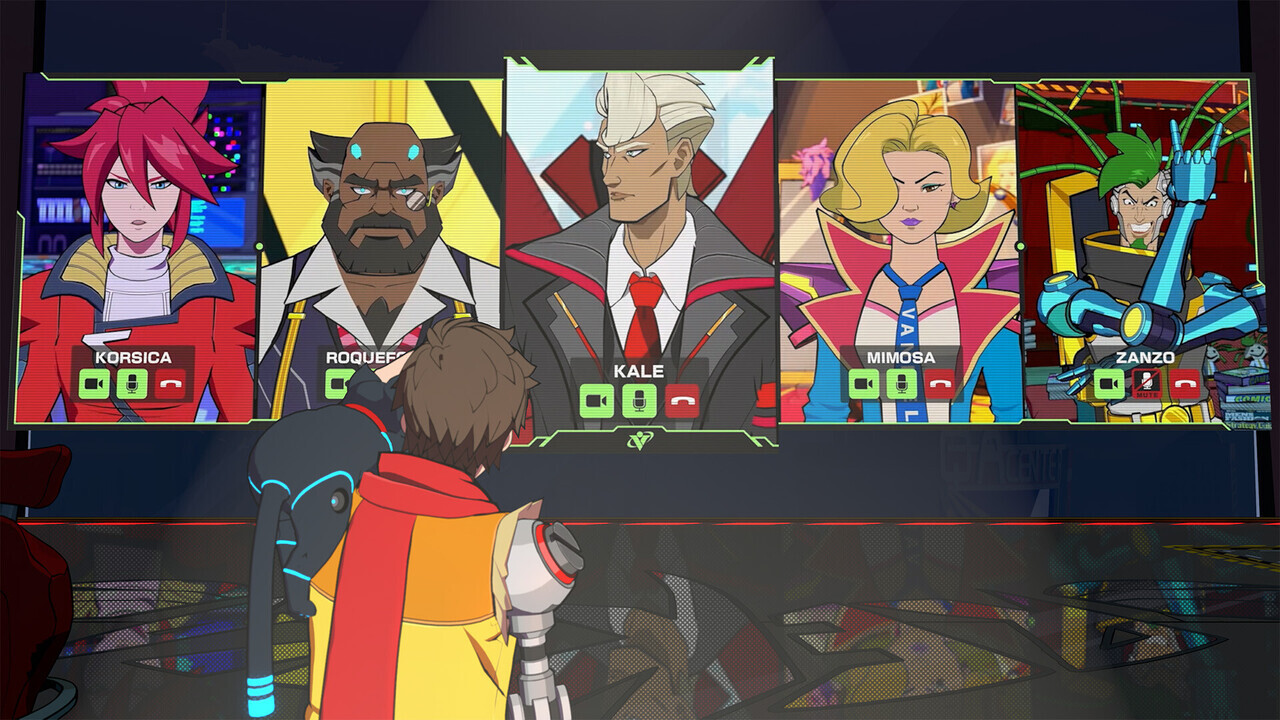
It takes a while for Chai to figure out that they’re doing something that matters, transitioning from the “lonely boy” we meet at the start into an off-beat punk hero determined on taking down an empire that quite literally aims to mind-control the population into buying its products – a laughably convoluted, cartoonish plan to pump up their profits… which unfortunately doesn’t sound too far-fetched in 2023.
Of course, Vandelay presents itself as the solution to most of society’s pressing problems, as a gateway to ultimate happiness. Buy Vandelay products and forget about your concerns. It’s that easy! In the era of peak marketing ridiculousness, we know quite a bit about big corporations trying to sell us pretty much anything with big promises and striking colors.
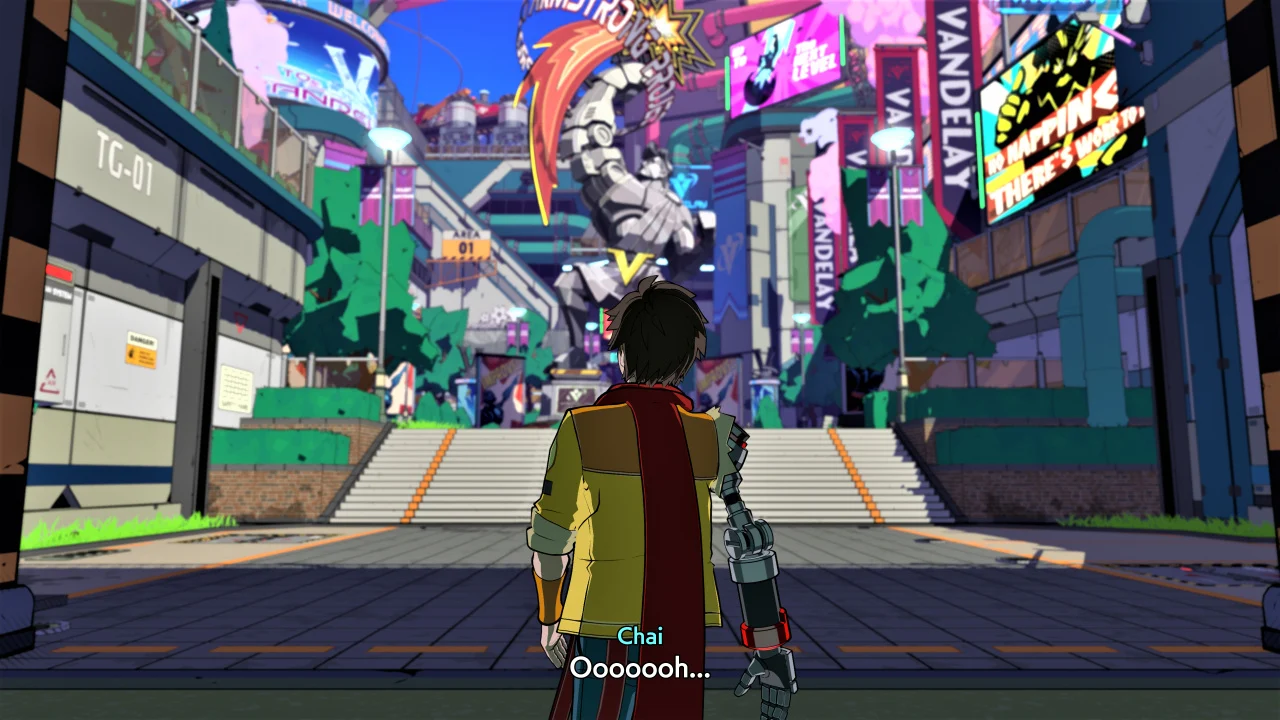
There’s something oddly realistic about Hi-Fi Rush’s uber-cartoony brand of dystopian capitalism. While fiction has traditionally painted undesirable futuristic societies where corporations have won as gray, dark, and often bloody, John Johanas’ game posits that a corpo-dominated future would instead look silly as fuck. It’s not nearly as cynical nor deranged as Borderlands’ take on the matter, but it’s close enough.
Most people, including the brightest of artists, have (understandably) tricked themselves into thinking the endgame of unchecked capitalism would look gloomy and desperate in an otherworldly and clearly impossible way. But recent history has taught us it might be a goofy-as-shit state of affairs instead. As big companies and renowned tech billionaires hijack popular culture and shape seemingly innocuous trends, we might be signing away our collective future in exchange for cool gadgets and epic memes.
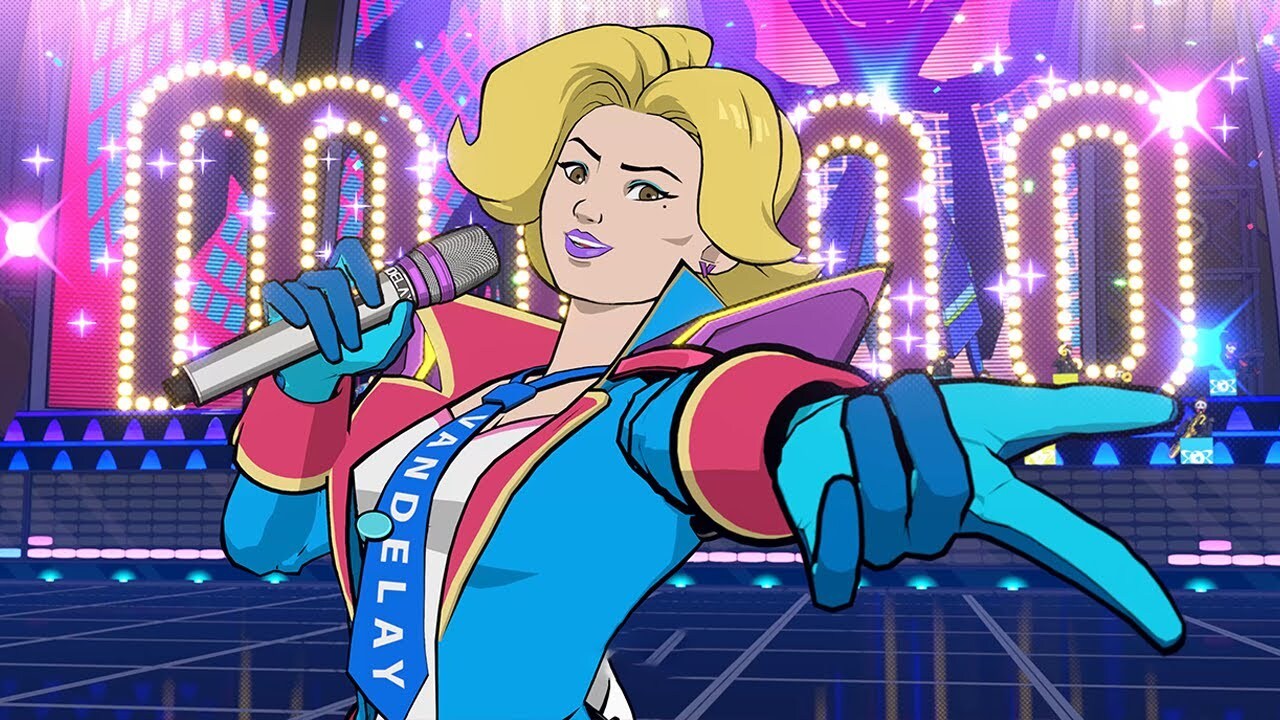
As I mentioned before, Chai isn’t exactly “woke” at the beginning of the game, only seeking shelter — probably in an unconscious way — in the past through early 2010s music. The modern music of the Hi-Fi Rush universe probably sucks and is anything but genuine and analogic. That’s his thing. And his companions also exhibit the same longing for a simpler past through their own areas of expertise: Peppermint is an old-fashioned tech genius who likes to be hands-on; Macaron is a former R&D head who tinkers away in a traditional workshop; Korsica is a security chief-turned-rebel who enjoys getting her hands dirty and loathes the other Vandelay bosses.
The vibrant colors and overall cheerfulness of Hi-Fi Rush’s world and narrative have two distinct and completely opposite purposes. First, they remind us, the players, of better times (gaming-related and IRL) and make us hope for a return to normalcy, whatever that is. Secondly, it’s a massive in-universe deception, masking the corporate machine in cute and clean aesthetics that look anything but evil. The latter is probably the most fascinating to me, as it gets the pro-revolution message across in an innocent way — “It’s a Saturday morning cartoon! The bad guys are so exaggerated and funny!” — while tricking the gaming industry’s own relentless production and marketing machine into roasting itself.
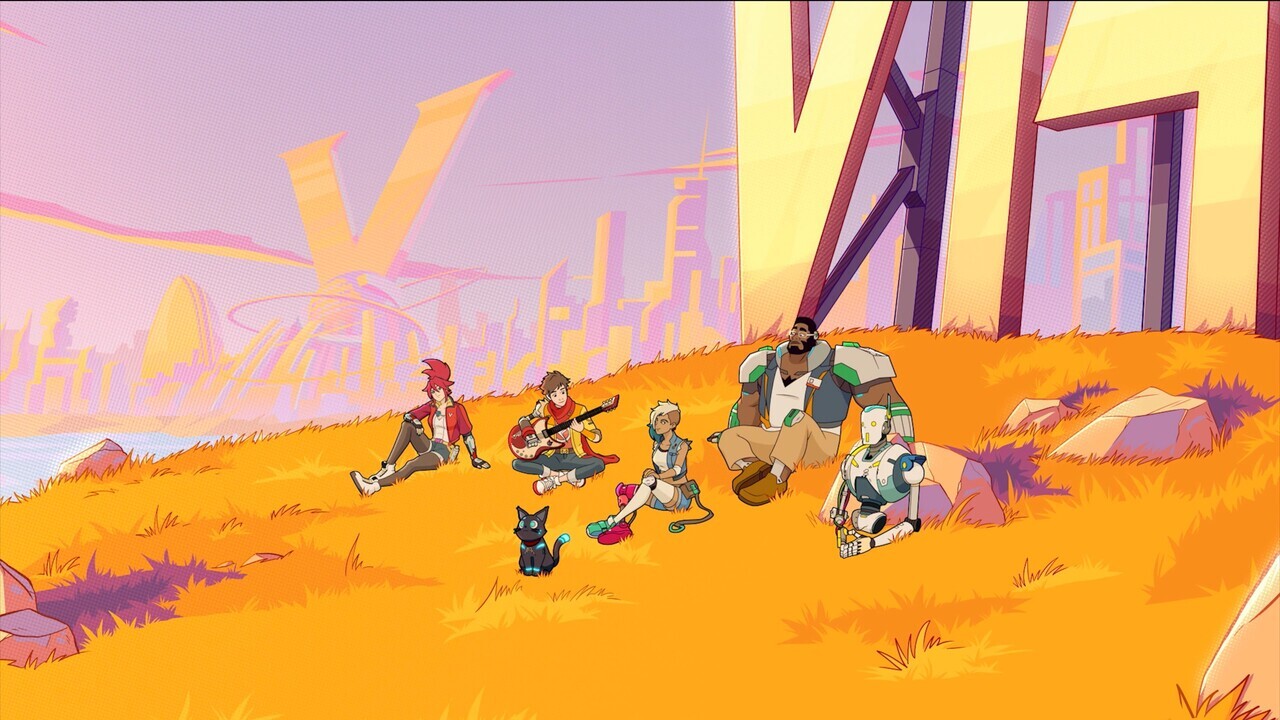
In typical blockbuster fashion, Hi-Fi Rush doesn’t fully commit to its revolutionary discourse though. Once Kale is beaten and SPECTRA shut down, it’s reasonable to expect the gang to tear down the entire enterprise and shape Vandelay’s long-forgotten values into something new. However, they instead land jobs in the “new” Vandelay under Roxanne’s promise of making things right. There are more than enough reasons to believe her, yet the game had made it pretty clear earlier that the whole system was broken and inevitably veered into the direction it did; Kale only happened to be the man who surfed that wave. As long as that system exists and the technology becomes more and more advanced, new Kales will show up to replace the Roxannes and Peppermints.
Could a potential sequel explore this contradiction, letting Chai and the team know that deeper changes need to happen? Maybe. But as it stands, the otherwise excellent Hi-Fi Rush is yet another big-budget piece of fiction that has one hand tied behind its back because it’s trying to criticize and transform the very system funding it. Personally, I’m just glad to see a mainstream game openly say that a miserable future needn’t look and feel miserable. That alone holds plenty of value beyond the gorgeous visuals.

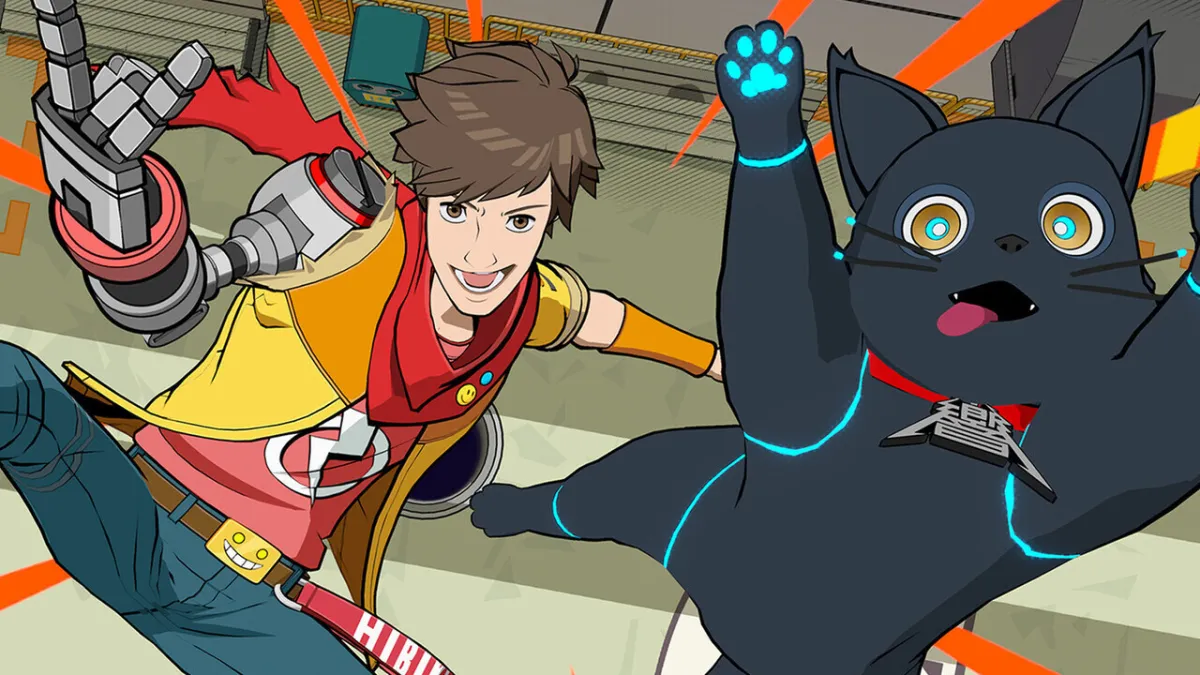




Published: Feb 26, 2023 11:00 am